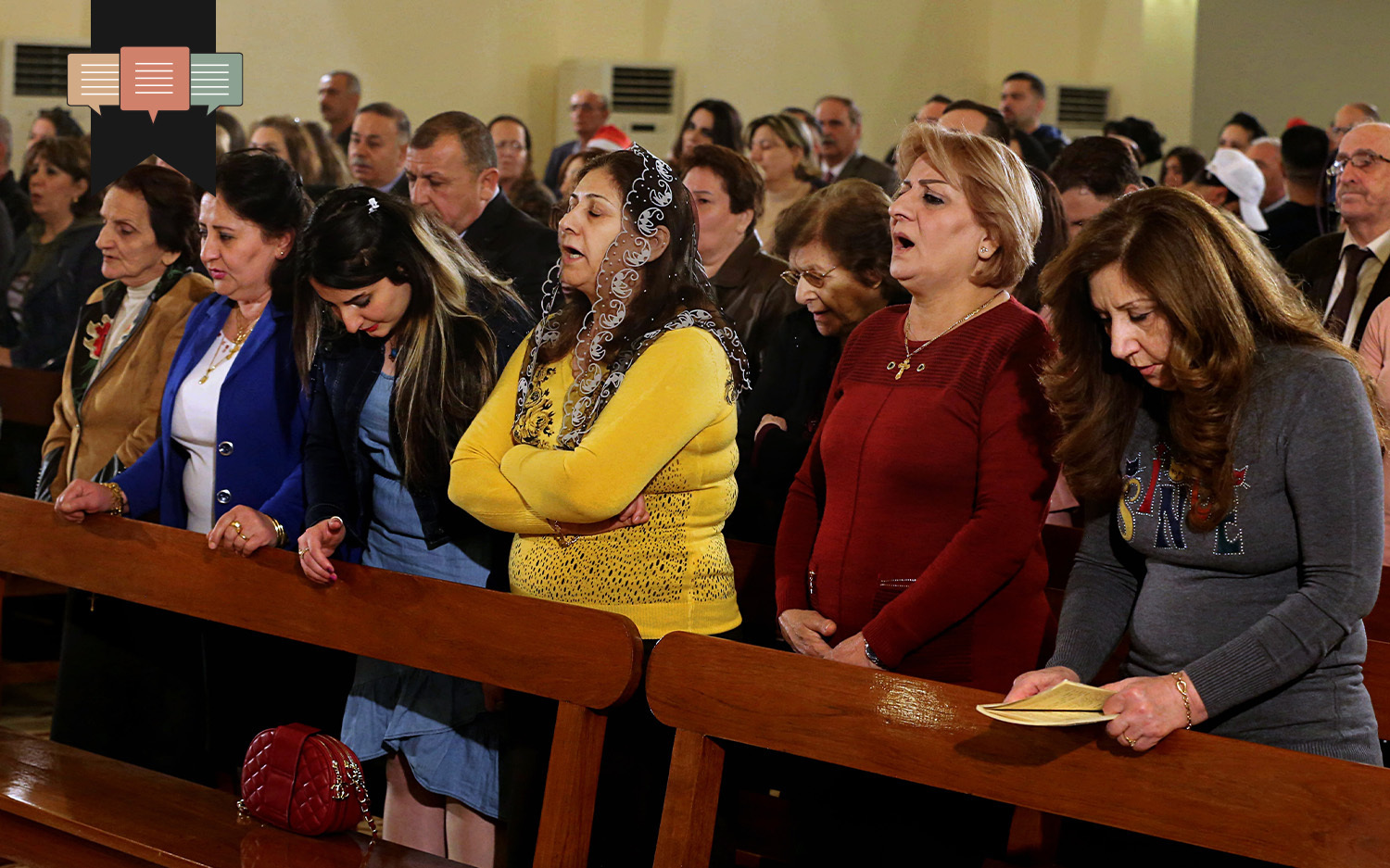Two decades after American intervention, Christians are being pushed out
Iraq is known today as a Muslim nation. Islam is entrenched in the constitution and a vast majority of its population are followers of Muhammad’s teaching. However, the region has an even longer Christian history, with evidence suggesting the gospel was present back in the second century.
Today, though, Christianity in Iraq is in dramatic decline. Since the 2003 invasion by U.S.-led coalition forces, the Christian community in Iraq has experienced catastrophic collapse. Before the war, the country had a Christian population of 1.3 million. Today, Iraqi church officials claim there are approximately 250,000 remaining, a drop of 83 percent in two decades.
The actual numbers are likely much lower, although Christian leaders in Iraq are reluctant to admit this due to the ramifications for their political representation. Open Doors, a ministry to persecuted Christians, reports only 164,000 believers remain in Iraq, which would amount to a decline of 90 percent since the invasion.
There are a variety of reasons for this decline. One is the destabilization of the region since the 2003 coalition invasion. The plight of Christians across the Middle East in the past two decades, whether in Syria, Iraq, or elsewhere, points to a counter-intuitive point—while totalitarian strong men are not the ideal rulers, they have provided sometimes Christians with genuine goods and a stable environment.
Since the deposition of Saddam Hussein, Iraq has been roiled by civil conflict and an extremist and expansionist version of Islam. These have adversely affected Christians. A recent report from the Budapest-based Danube Institute reveals that Christian leaders in Iraq describe the pre-2003 era as “stable” and “safe,” a time that was “free from the sectarianism and violence.” Saddam might have been brutal and wicked, but the church had stability and peace under his regime, something it does not enjoy now.
The impact of ISIS (often referred to as the Islamic State or Daesh) has also been catastrophic. The Islamist Caliphate’s legacy in Iraq is absolute devastation and displacement for many in the country’s Christian minority. Thousands of Christian households have been uprooted after losing their homes and land. Most have not returned.
Saddam might have been brutal and wicked, but the church had stability and peace under his regime, something it does not enjoy now.
A further complication for the Iraqi church is the lack of government recognition and support. Researchers from the Danube Institute also found that church leaders across denominations and traditions rue the lack of financial and security infrastructure for churches. When they are not under constant threat, private security measures are considered a daily necessity for many Christian institutions in the country.
This lack of government support reflects the church’s diminishing political influence. Cardinal Louis Raphaël I Sako, who leads the Chaldean Catholic Church, noted the lack of political representation for Christian groups in the current Iraqi system, as he explained in this an interview in late 2022. The diminishing number of Christians accentuates this problem. The likely overestimation of the number of believers by Iraqi churches is understandable, given that their political clout partly depends on their proportion of the country’s population.
However much the church has suffered due to persecution, inequality, and civil conflict, a structural factor also undergirds Christianity’s decline. The exit of many of Iraq’s believers during the last two decades was also triggered by, and now precipitates, structural economic challenges.
Iraq’s Christian communities need economic, educational, and social infrastructure to help their young people stay. Many are leaving for Europe and other parts of the world due to a lack of employment and education opportunities in their home country. People cannot live where there seems to be no future for them and their families, and that includes Christian believers.
The greatest long-term risk for the Christian community in Iraq may not be martyrdom or incarceration. Rather, Christianity’s survival will depend on economic development, which must be undergirded by investment in community development and education.
Western Christians can help with prayer and finances, and government support for religious liberty can provide a lifeline. It is notable that Hungary is offering direct support to Iraq’s Christian communities. Unless help comes, we could witness the death of one of the oldest Christian communities in the world.
By wng.org






